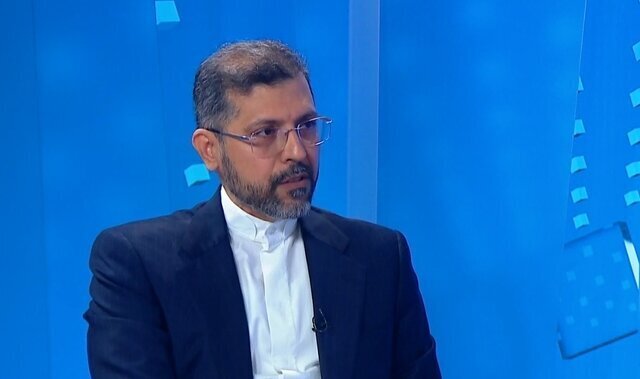No message sent to White House for talks: Iran deputy FM

TEHRAN - In a wide-ranging interview with BBC World’s Lyse Doucet on Thursday, Iranian Deputy Foreign Minister Saeed Khatibzadeh rejected claims made by U.S. President Donald Trump that Iran had reached out to the White House seeking a deal, following Israel’s recent attack on Iranian territory.
“We have not sent any message or initiated any contact with the White House,” Khatibzadeh stated. “On the contrary, from the earliest hours after the assault, it was the U.S. that sent messages through various regional leaders and European channels, trying to distance itself from the Israeli operation.”
Khatibzadeh emphasized that the military strike occurred at a time when diplomatic negotiations were progressing. “Just a day before the attack, we were in Oslo, coordinating the next round of talks in Muscat. We were very close to reaching an agreement when Israel launched its aggression to sabotage diplomacy altogether.”
He accused the United States of complicity in the attack, saying, “Despite private messages denying involvement, public statements and tweets by Trump tell another story — one that suggests not only support but active participation in this military operation.”
Responding to Doucet’s characterization of “mutual attacks,” Khatibzadeh corrected: “No. This is not retaliation. We were attacked, and we are exercising legitimate self-defense under Article 51 of the UN Charter.”
Khatibzadeh also condemned Israel’s targeting of civilians in Iran, refuting the baseless claims against Iran which are circulating in media. “Let’s be clear. Israel targeted our civilians, our hospitals, and non-military infrastructure. We have only targeted military and intelligence sites directing the aggression. Iran has not attacked any civilians.”
Khatibzadeh criticized Western media for their “bias and silence” regarding Israeli actions. “While we were negotiating, Israel chose war. And the international community’s failure to condemn such blatant violations risks normalizing attacks on sovereign nations — even on nuclear facilities under IAEA safeguards.”
Asked about the prospect of renewed negotiations, he said, “There will be no talks as long as the aggression continues. If the bombing stops, diplomacy will once again be an option.”
The Iranian diplomat warned Washington against becoming further involved in the conflict. “If the U.S. joins this war, it will be remembered as a president dragging his country into a needless regional quagmire. This is not America’s war.”
He suggested that Israeli Prime Minister Benjamin Netanyahu deliberately acted to derail diplomacy. “Trump and his team knew we were getting close to an agreement. Netanyahu knew it too—and he struck first.”
Khatibzadeh reiterated Iran’s position on nuclear weapons. “If Iran wanted a bomb, it would’ve built one by now. We signed the JCPOA in 2015, committing to 3.67% enrichment. It was the U.S. that tore up the agreement and punished those who complied.”
“Iran’s 60% enrichment is a response to U.S. violations — not a move toward weapons. We remain committed to a peaceful nuclear program, as always."
In closing, Khatibzadeh declared that Iran would not halt its response until the aggression ceases and international accountability is ensured.
“The moment Israel ends its attacks, the world holds it accountable, and its impunity ends — that’s when we can talk about what comes next. Until then, we will defend ourselves.”
Leave a Comment